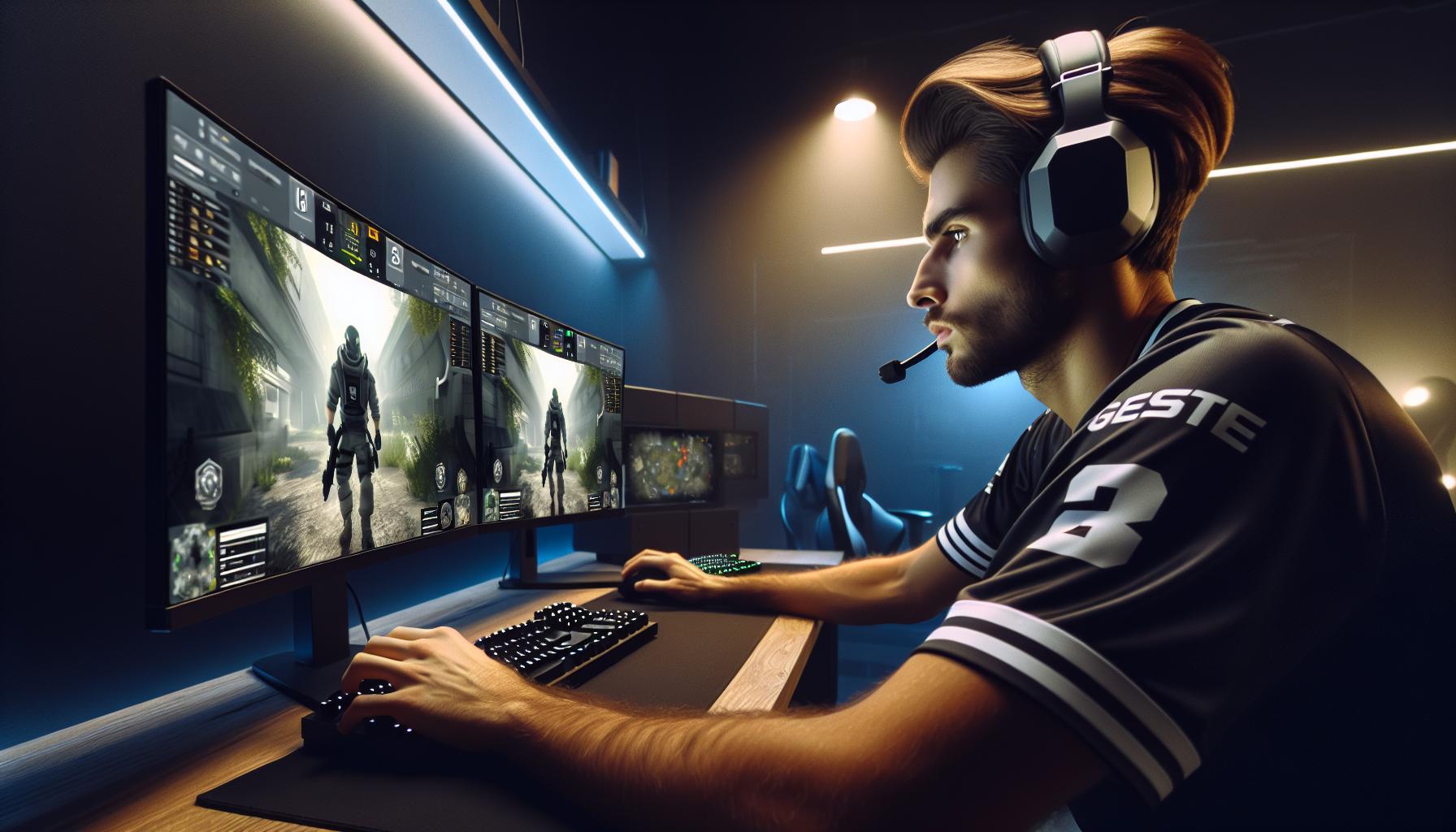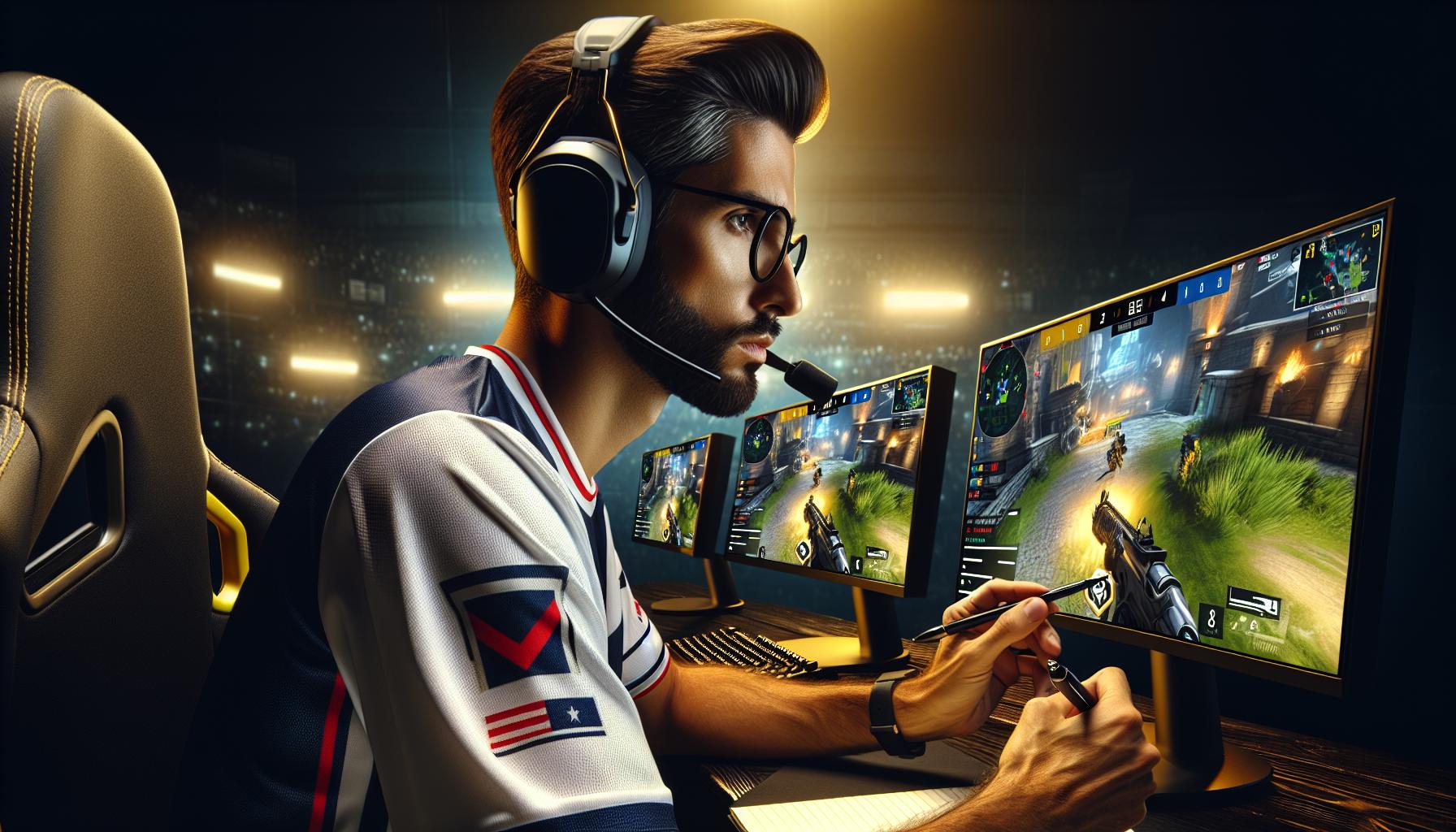The world of esports has exploded in popularity, transforming from a niche hobby into a multi-billion dollar industry. With this rapid growth, the demand for skilled professionals has surged, particularly in coaching roles. Esports coaches play a crucial part in developing players’ skills, strategizing for competitions, and fostering team dynamics, making these positions both exciting and impactful.
As teams strive for excellence in high-stakes tournaments, the role of an esports coach has never been more vital. They not only analyze gameplay but also mentor players, helping them improve their performance and mental resilience. This article delves into the various aspects of esports coach jobs, exploring the skills required, potential career paths, and the future of coaching in this dynamic field. Whether you’re an aspiring coach or just curious about the profession, there’s plenty to discover in the realm of esports coaching.
Key Takeaways
- Esports Coaching Demand: The rapid growth of the esports industry has led to an increased demand for skilled coaches who enhance player performance and team success.
- Key Responsibilities: Coaches are responsible for gameplay analysis, strategy development, player mentorship, and team management to optimize both individual and team results.
- Essential Skills: Effective coaches need a combination of game knowledge, analytical thinking, strong communication, leadership abilities, and conflict resolution skills.
- Career Paths: Opportunities in esports coaching include positions such as team coach, analyst coach, and mental coach, each focusing on different aspects of player and team development.
- Hiring Process Insights: A strong resume and portfolio showcasing coaching experiences and accomplishments, along with excellent interview skills, are crucial for securing a coaching position in esports.
- Growth Opportunities: Continued education, networking, and promoting a positive team culture are essential for career advancement in the expanding field of esports coaching.
Esports Coach Jobs
Esports coach jobs involve significant responsibilities aimed at enhancing player performance and team success. Coaches analyze gameplay, develop strategies, and prepare players for competitions. Expertise in specific games, understanding of competitive dynamics, and strong communication skills establish the foundation for effective coaching.
Coaches provide mentorship to players, fostering personal and professional growth within esports teams. They conduct practice sessions, review game footage, and provide feedback to refine skills. In addition to technical skills, coaches must navigate team dynamics, ensuring effective collaboration among players.
Key responsibilities of esports coaches include:
- Gameplay Analysis: Coaches assess matches to identify strengths and weaknesses in both individual and team performances.
- Strategy Development: Coaches create tactical plans tailored to specific opponents and overall team goals.
- Player Mentorship: Coaches support player development through one-on-one guidance and constructive criticism.
- Team Management: Coaches oversee team dynamics, resolve conflicts, and promote a positive environment conducive to success.
Aspiring esports coaches should focus on developing the following skills:
- Game Knowledge: In-depth understanding of game mechanics, meta strategies, and character abilities.
- Communication: Strong verbal and written skills to convey ideas clearly and build rapport with players.
- Leadership: Ability to inspire and motivate players, fostering a cohesive team environment.
- Analytical Thinking: Capacity to analyze data, game footage, and player performance to inform improvements.
Career paths in esports coaching vary, potentially leading to positions such as head coach, analyst, or director of player development. As the industry evolves, coaching roles continue to grow in relevance, establishing a promising future for professionals seeking a place in esports.
Skills Required for Esports Coaches

Esports coaches need a combination of technical and soft skills to excel in their roles. These skills enable them to guide players effectively and enhance team performance.
Technical Skills
- Game Knowledge: Coaches must possess in-depth understanding of the specific games they coach, including mechanics, strategies, and meta-game trends.
- Analytical Skills: Coaches analyze gameplay data, identify patterns, and develop strategies based on performance metrics to improve team outcomes.
- Communication Tools: Familiarity with communication platforms and software, such as Discord or TeamSpeak, allows for effective coordination and strategizing.
- Training Programs: Knowledge in structuring training sessions, using drills that target skill development, and assessing player progress remains essential.
- Hardware and Software Proficiency: Understanding gaming equipment and software aids in optimizing player performance and enhancing the training experience.
- Leadership: Strong leadership ability contributes to creating a positive team environment and fostering player development.
- Communication: Effective communication skills ensure clear message delivery, keeping players informed and engaged.
- Empathy: Understanding players’ perspectives builds trust and helps coaches tailor their approaches to individual needs and challenges.
- Conflict Resolution: Coaches must handle conflicts within the team efficiently, promoting collaboration and harmony.
- Motivational Skills: Providing encouragement and maintaining team morale during challenging times are key attributes for sustaining motivation and performance.
Types of Esports Coach Positions

Esports coaching encompasses various roles, each contributing to player development and team success. Understanding these positions helps aspiring coaches identify their ideal career path.
Team Coach
Team coaches focus on the overall performance and synergy of the team. They develop strategies tailored to the group’s strengths and weaknesses. Responsibilities include conducting practice sessions, analyzing gameplay footage, and providing constructive feedback. Effective team coaches foster a strong team culture and morale, ensuring players communicate openly and work collaboratively towards common goals.
Analyst Coach
Analyst coaches specialize in performance evaluation and strategy formulation. They analyze in-game data and statistics to identify trends and areas for improvement. By providing detailed insights, they equip players with actionable strategies for upcoming matches. Analyst coaches also prepare opponents’ profiles, allowing teams to tailor their approach for specific rivals. Their analytical skills enhance not just gameplay tactics but also overall team performance.
Mental Coach
Mental coaches focus on the psychological aspects of competitive gaming. They work with players to enhance mental resilience, focus, and motivation. Through personalized mental training programs, these coaches help players manage stress and improve their overall mindset during high-pressure situations. Mental coaches play a crucial role in ensuring players maintain a positive attitude, fostering a competitive spirit that contributes to better performance in tournaments.
The Hiring Process for Esports Coaches

The hiring process for esports coaches involves several key steps, each crucial for securing a position in this competitive industry. Candidates must demonstrate their qualifications through a well-structured resume and portfolio, followed by excelling in interviews.
Resume and Portfolio
A resume needs to highlight relevant experience in esports and coaching. Candidates should include their coaching roles, notable achievements, and any certifications related to esports. Quantifying accomplishments, such as improved team rankings or successful tournament performances, strengthens the resume.
A portfolio should showcase game analysis, training outlines, and examples of strategy sessions. Video clips from coaching sessions can illustrate a candidate’s coaching style. Furthermore, including player testimonials or references speaks to a coach’s ability to develop talent and foster teamwork.
Interview Tips
Interviews for esports coach positions typically assess both technical knowledge and interpersonal skills. Candidates should prepare to discuss successful strategies implemented in past roles and provide examples of how they developed players’ skills.
Demonstrating in-depth understanding of the specific game or games involved is essential. Knowledge of current meta and notable competitors can set candidates apart.
Candidates need to communicate clearly and confidently, emphasizing their coaching philosophies. Moreover, showcasing adaptability and willingness to learn makes a positive impression, as the esports landscape constantly evolves. Engaging with the interviewers and asking insightful questions about the team and organizational goals can also strengthen candidacy.
Career Growth in Esports Coaching
Career growth in esports coaching presents numerous opportunities as the industry expands. Aspiring coaches can advance their careers through experience, education, and networking. Entry-level positions, such as team assistant or analyst, provide foundational knowledge and practical skills essential for future roles.
Continued education plays a crucial role in career advancement. Completing relevant certifications, attending workshops, and participating in professional development programs increase a coach’s marketability. Understanding evolving game strategies and coaching methodologies enhances expertise, benefiting both coaches and their teams.
Networking within the esports community offers significant advantages. Attending industry conferences, engaging in online forums, and connecting with established professionals can lead to valuable mentorship opportunities and job openings. Building relationships within the gaming community fosters a deeper understanding of industry trends and player expectations.
Promoting a positive team culture is essential for advancing within the field. Successful coaches develop players’ skills while maintaining a supportive environment. Coaches focusing on player development often find themselves in high-demand roles, leading to positions such as head coach or director of player development.
As esports evolves, specialized coaching roles are likely to emerge. Coaches may focus on specific game genres, target demographics, or unique training methodologies. This specialization further diversifies career opportunities and allows for personal branding, distinguishing coaches in a competitive job market.
Career growth in esports coaching relies on continuous improvement, industry engagement, and adaptability. Emphasizing these aspects can significantly enhance prospects for individuals seeking a successful career in esports coaching.
Esports Coaching Landscape
The esports coaching landscape is vibrant and full of opportunities. As the industry continues to expand the demand for skilled coaches will only increase. Those who embrace continuous learning and adapt to the evolving dynamics of esports will find themselves well-positioned for success.
Building a strong foundation in both technical and soft skills is crucial for aspiring coaches. Networking within the esports community can open doors to mentorship and career advancement. With dedication and a passion for player development esports coaches can make a significant impact in this exciting field.